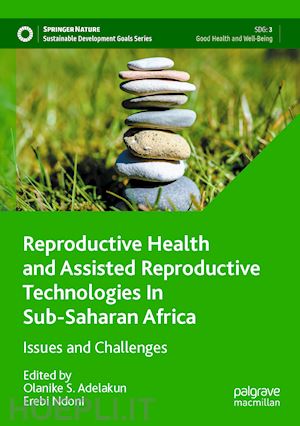
Questo prodotto usufruisce delle SPEDIZIONI GRATIS
selezionando l'opzione Corriere Veloce in fase di ordine.
Pagabile anche con Carta della cultura giovani e del merito, 18App Bonus Cultura e Carta del Docente
This book focuses on reproductive health rights and assisted reproductive technologies (ART) in sub-Saharan Africa. Each chapter is connected to the other by focusing on different aspects of ART as a means of achieving conception.
Topics such as regulation of ART practices, surrogacy and specific aspects of ART, which are gradually becoming acceptable but largely unregulated in Africa, promises to be of interest to scholars, researchers and fertility practitioners. Research in the book take a rights based approach and ethical analysis of ART practice in sub-Saharan Africa by authors from diverse backgrounds bringing together law and society perspectives.
Readers stand to gain new knowledge on the societal, legal, medical and psychological requirements, effects and challenges of reproductive health rights and ART in the African context. The book is also relevant to UN Sustainable Development Goal 3: Good Health and Well-being, given that it promotes and advocates for accessto reproductive healthcare for persons who have difficulty or are unable to conceive without medical assistance.Olanike S. Adelakun is an expert in the broad field of international law with specific interest in women’s rights and child protection. She is a lecturer at the American University of Nigeria and currently a visiting researcher at New York University School of Law. Her experience in preventing Gender Based Violence has led to a wide consultation and program implementation with UN organizations and government agencies. She has published widely in her fields of engagement.
Erebi Ndoni is licenced to practice law in Nigeria and a qualified Solicitor of England and Wales. She obtained a Doctorate degree in Law from the University of Dundee. She is currently an Assistant Professor at the American University of Nigeria with research focus on the diverse ways sustainable development intersects with natural resources, international trade, gender, social responsibility, disability, human rights, and the environment. She consults for UN Organizations to implement structured courses on Gender Based Violence. She has publications to her credit in areas that cut across her research interests.











Il sito utilizza cookie ed altri strumenti di tracciamento che raccolgono informazioni dal dispositivo dell’utente. Oltre ai cookie tecnici ed analitici aggregati, strettamente necessari per il funzionamento di questo sito web, previo consenso dell’utente possono essere installati cookie di profilazione e marketing e cookie dei social media. Cliccando su “Accetto tutti i cookie” saranno attivate tutte le categorie di cookie. Per accettare solo deterninate categorie di cookie, cliccare invece su “Impostazioni cookie”. Chiudendo il banner o continuando a navigare saranno installati solo cookie tecnici. Per maggiori dettagli, consultare la Cookie Policy.